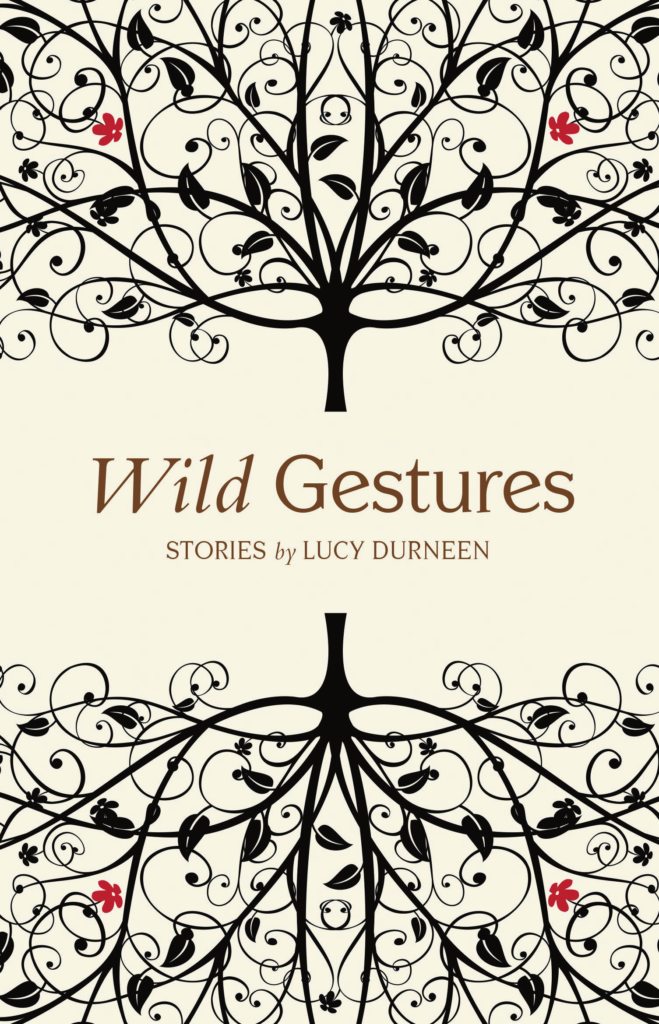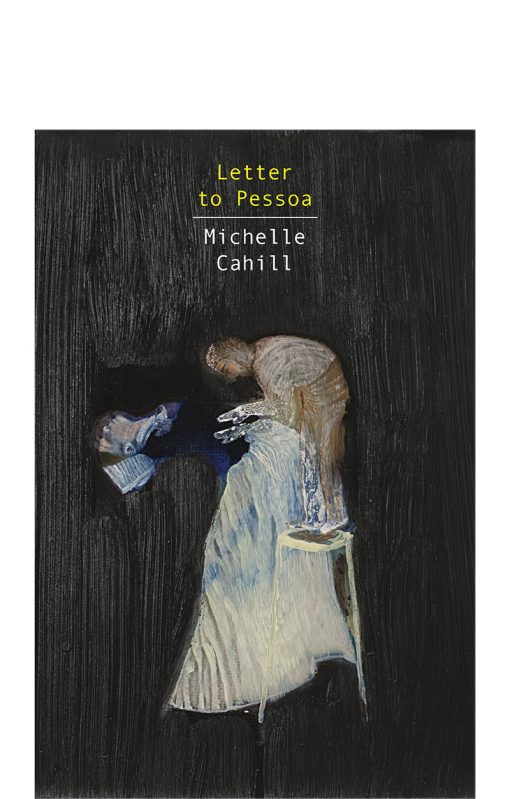 The language is silky and seductive and as a reader I was drawn in, drifting about like a leaf in a stream taking in sights, sounds and feelings. Lucy Durneen leaves the door open to her mind and as the pages pass I’m looking out of her eyes focusing and feeling the world as she describes and experiences it.
The language is silky and seductive and as a reader I was drawn in, drifting about like a leaf in a stream taking in sights, sounds and feelings. Lucy Durneen leaves the door open to her mind and as the pages pass I’m looking out of her eyes focusing and feeling the world as she describes and experiences it.
Tag: short stories
A review of The Chaos of Mokii by Geoff Nelder
 At a deeper level, there are questions raised about the nature of reality that are chillingly relevant considering the fact that last year Elon Musk stated publically that there is a billion to one chance that we’re living in “base reality” (that is, a non-virtual world), and even Neil deGrasse Tyson has argued that there is a high probability that we’re living a computer simulation.
At a deeper level, there are questions raised about the nature of reality that are chillingly relevant considering the fact that last year Elon Musk stated publically that there is a billion to one chance that we’re living in “base reality” (that is, a non-virtual world), and even Neil deGrasse Tyson has argued that there is a high probability that we’re living a computer simulation.
A review of So Much Smoke by Felix Calvino
 Always there’s a sense that the world is not quite fixed and that what we’re experiencing is illusory (so much smoke), and charged by scars, memories, hunger, and all that we’ve lost. The stories that make up So Much Smoke are powerful, not so much because of what happens, but because of the way they hint at how much lurks below the surface
Always there’s a sense that the world is not quite fixed and that what we’re experiencing is illusory (so much smoke), and charged by scars, memories, hunger, and all that we’ve lost. The stories that make up So Much Smoke are powerful, not so much because of what happens, but because of the way they hint at how much lurks below the surface
A review of Gnarled Bones by Tam May
 On reading these stories, one is reminded of the paintings of Marc Chagall: a hermetic world of imagery, difficult to interpret, informed by rich folk traditions and personal experience. In Gnarled Bones, women are the principal (but by no means sole) targets of the past’s slings and arrows. In this regard, the opening story, ‘Mother of Mischief’, is the most interesting in the collection, casting retrospective light on its own ambiguous title and showing us how we can, after all, be the authors of our own entrapment.
On reading these stories, one is reminded of the paintings of Marc Chagall: a hermetic world of imagery, difficult to interpret, informed by rich folk traditions and personal experience. In Gnarled Bones, women are the principal (but by no means sole) targets of the past’s slings and arrows. In this regard, the opening story, ‘Mother of Mischief’, is the most interesting in the collection, casting retrospective light on its own ambiguous title and showing us how we can, after all, be the authors of our own entrapment.
A review of Growing Dark: Selected Stories by Dennis Must
 Dennis Must’s Going Dark is a succession of 17 short stories. Must’s writing is expressive, as he approaches the numerous stages of life we all share in the transition from youth to maturity to the inevitable death that awaits us all. The lives in these stories are unrelated, and yet very much the same. The work is at once a multilayered thought provoking psychological frolic in addition to being a deeply seated thoughtful work. Whatever the overview or leitmotif, each portrayal in this work ultimately goes dark as Must probes deep within the core of his intricate, complex characters.
Dennis Must’s Going Dark is a succession of 17 short stories. Must’s writing is expressive, as he approaches the numerous stages of life we all share in the transition from youth to maturity to the inevitable death that awaits us all. The lives in these stories are unrelated, and yet very much the same. The work is at once a multilayered thought provoking psychological frolic in addition to being a deeply seated thoughtful work. Whatever the overview or leitmotif, each portrayal in this work ultimately goes dark as Must probes deep within the core of his intricate, complex characters.
A review of The Kiss and Other Stories by Anton Chekhov
 These classic stories have been cast in wonderfully fresh translations by Hugh Aplin. To start with, let me say that it is an attractive package overall: seven stories, an account of Chekhov’s life and his works (the plays as well as the books), a fair few photographs of Chekhov and family, and a select secondary bibliography (to which should be added Rosamund Bartlett’s outstanding biographical work Chekhov: Scenes from a Life).
These classic stories have been cast in wonderfully fresh translations by Hugh Aplin. To start with, let me say that it is an attractive package overall: seven stories, an account of Chekhov’s life and his works (the plays as well as the books), a fair few photographs of Chekhov and family, and a select secondary bibliography (to which should be added Rosamund Bartlett’s outstanding biographical work Chekhov: Scenes from a Life).
A review of Shibboleth & Other Stories edited by Laurie Steed
 An outstanding collection of short stories makes up this book of the Margaret River Short Story Competition for 2016. It is sponsored by Margaret River Press, who believe the ‘short story genre is greatly undervalued’, according to their website. The competition has been run since 2011, producing five published collections so far, with the 2017 competition having just recently closed for submissions.
An outstanding collection of short stories makes up this book of the Margaret River Short Story Competition for 2016. It is sponsored by Margaret River Press, who believe the ‘short story genre is greatly undervalued’, according to their website. The competition has been run since 2011, producing five published collections so far, with the 2017 competition having just recently closed for submissions.
A review of Letter to Pessoa by Michelle Cahill
 Though each of the pieces works well individually, taken collectively, Letter to Pessoa presents a multifaceted world that builds new linguistic spaces through correspondence and conjunction. By blurring the distinctions between author and narrator/narration, reader/writer/voyeur, past/present, and even life/death, Cahill has created an exciting and powerful collection that continues to shift, change and reveal new insight with each re-reading.
Though each of the pieces works well individually, taken collectively, Letter to Pessoa presents a multifaceted world that builds new linguistic spaces through correspondence and conjunction. By blurring the distinctions between author and narrator/narration, reader/writer/voyeur, past/present, and even life/death, Cahill has created an exciting and powerful collection that continues to shift, change and reveal new insight with each re-reading.
A review of He Runs the Moon by Wendy Brandmark
 Themes of identity and belonging disturb the calm surface of Wendy Brandmark’s collection of short stories, which are set in Denver, New York and Boston in the 1950s, 1960s and 1970s. Many of the stories concern characters who have been displaced geographically and emotionally: young or old, successful or unsuccessful, their lives have slipped their moorings.
Themes of identity and belonging disturb the calm surface of Wendy Brandmark’s collection of short stories, which are set in Denver, New York and Boston in the 1950s, 1960s and 1970s. Many of the stories concern characters who have been displaced geographically and emotionally: young or old, successful or unsuccessful, their lives have slipped their moorings.
A review of Dark Avenues by Ivan Bunin
 If you’re looking for a point of comparison, I’d say Bunin as a writer is similar to Chekhov, that’s his model. Though he is darker, more risqué and also narrower in his sympathies. There are some people, you feel, that Bunin is just not interested in – something you never feel with Chekhov. There are some people, you feel, that Bunin is just not interested in – something you never feel with Chekhov. Bunin is a little old-fashioned or out of touch too, you sense. Set in his ways. You read a story written in the ‘40s – and so contemporaneous with Hemingway, Waugh and Greene – and the people are behaving like turn of the century Russian nobility.
If you’re looking for a point of comparison, I’d say Bunin as a writer is similar to Chekhov, that’s his model. Though he is darker, more risqué and also narrower in his sympathies. There are some people, you feel, that Bunin is just not interested in – something you never feel with Chekhov. There are some people, you feel, that Bunin is just not interested in – something you never feel with Chekhov. Bunin is a little old-fashioned or out of touch too, you sense. Set in his ways. You read a story written in the ‘40s – and so contemporaneous with Hemingway, Waugh and Greene – and the people are behaving like turn of the century Russian nobility.